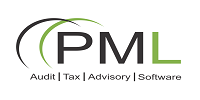VALUE ADDED TAX ADMINISTRATION IN NIGERIA

Value Added Tax (VAT) was introduced by the Federal Government of Nigeria and is provided for by the Value Added Tax Decree 102 of 1993 which became effective in 1994 which requires manufacturers, wholesalers, importers and suppliers of VATable goods and services to be registered within six months of commencement of business.
Such a registered person is expected to charge and collect VAT on supplied goods and services. The amount collected constitutes the VAT output.
On the other hand, a purchaser of VATable goods and services is also expected to pay VAT of 5% on the goods and services supplied to him. These constitutes the VAT input. While the difference between the output and the input represents the amount payable to the FIRS (Federal Inland Revenue Service).
Therefore, the amount is payable where the output tax exceeds the input tax. And where the input exceeds the output tax, this may be claimed from the revenue.
However, VAT is an offshoot of the sales tax but some significant inhibiting factors are;
- The frequency of returns discourages taxpayers from complying and VAT returns are supposed to be filed every month with the attendant cost to the taxpayer.
- The emphasis placed on tax collection has discouraged a number of taxpayers especially with the fact that all VAT outputs are chargeable to tax but not all inputs are allowed for the tax purpose.
- The apparent lack of transparency on the part of the tax authority. Queries will usually be raised where the VAT input exceeds the VAT output because of the reluctance of tax authority to refund taxpayers.
- Taxpayers consider VAT as an additional burden on them and will sometimes avoid buying VATable products if they are aware that it is being charged.
- The poverty level of the general populace which has eroded their economic power of purchase.
These and much more represents the factors inhibiting the administration and collection of Value Added Tax in Nigeria which the Federal Government needs to note.


